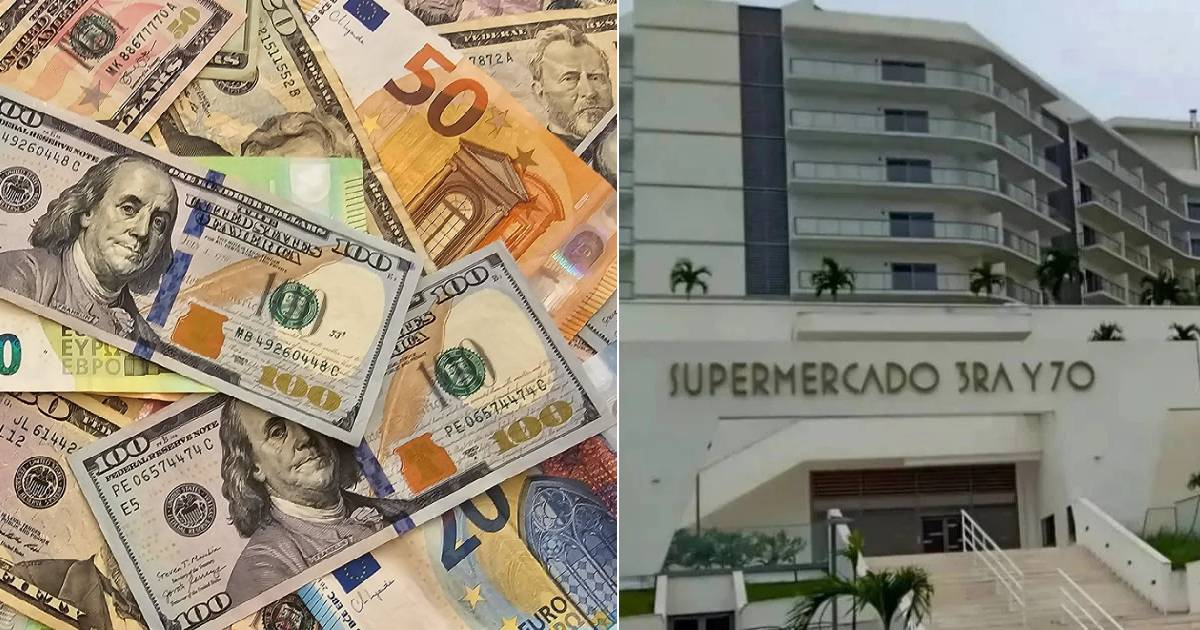The recent launch of a supermarket located at 3rd and 70th in Havana has sparked significant debate due to its policy of only accepting payments in U.S. dollars, either in cash or via cards linked to foreign currency accounts. This has led to an increased demand for dollars, putting pressure on the informal currency exchange market, where the U.S. dollar has seen a noticeable rise in exchange rates over the past day.
According to data from the independent site elTOQUE, the U.S. dollar (USD) has jumped from 315 to 320 Cuban pesos (CUP), while the euro (EUR) has risen from 320 to 325 CUP. This surge in exchange rates directly affects Cuban citizens, who are finding it increasingly difficult to access foreign currency essential for purchasing basic goods.
Moreover, these abrupt shifts in exchange rates undermine the purchasing power of remittances sent from abroad, which many Cuban families rely on. The supermarket at 3rd and 70th, part of the Gran Muthu Habana Hotel, offers a wide range of both domestic and international products, including food, beverages, toiletries, and appliances. However, the prices for these goods are steep; for instance, a 500-gram panettone is priced at $15.20, which exceeds the average monthly salary in Cuban pesos.
The opening of this supermarket has intensified discussions about the dollarization of the Cuban economy and the resulting social inequalities. The ongoing devaluation of the Cuban peso and the lack of confidence in the national currency have driven more people to seek refuge in foreign currencies, worsening the country's economic crisis. Experts caution that this trend is likely to persist unless effective economic measures are implemented to stabilize the national currency.
Impact of Dollarization on Cuban Economy
Why does the supermarket at 3rd and 70th only accept U.S. dollars?
The supermarket accepts only U.S. dollars to cater to the demand for foreign currency transactions, a policy that has sparked controversy in Cuba.
How has the exchange rate for the U.S. dollar changed recently in Cuba?
Recently, the exchange rate for the U.S. dollar increased from 315 to 320 Cuban pesos, indicating a rise in demand for the currency.
What are the implications of the rising exchange rates for Cuban citizens?
The rising exchange rates make it harder for citizens to acquire foreign currencies necessary for basic purchases, while also diminishing the value of remittances from abroad.
